Dartmouth Tree Surgeons (TQ6): So, you're keen on your cherished garden and get fulfillment from sorting out each of the gardening jobs which need doing through the year. However, there are several particular jobs that you shouldn't really try on your own. One of those jobs is tree surgery in all its many forms. If you have any task that needs to be done on your trees in Dartmouth, apart from pruning or tidying up, you need to employ a certified tree surgeon.
Tree surgeons can be called in for all kinds of reasons with regards to trees. The most commonplace aside from addressing wind damaged or hazardous trees are eliminating old tree stumps that are in the way, surveying trees for disease or damage so that these issues can be dealt with early on, reducing or thinning trees to create more space and light in your garden and formulating tree management or maintenance plans to keep your trees in good shape. The making safe of damaged or dangerous trees is obviously their most visible function, and you can occasionally see them hard at work after gales and storms.
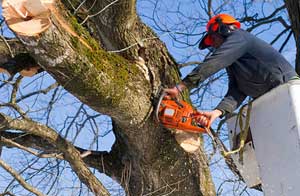
It's not only because of safety issues that you mustn't carry out work on trees yourself, additionally there are checks and inspections to be done. Your might live within a Conservation Area or your trees could be protected by a Preservation Order, both of which will influence what can be done to your trees. A competent tree surgeon will be quite capable of helping you with all of this stuff and will almost certainly also be associated with the Arboricultural Association, to provide reassurance with regards to the work that's being done. Public liability insurance is necessary in relation to tree related work, therefore ensure that your chosen tree surgeon is effectively covered.
It is very important that your chosen tree surgeon has all of the essential tools and equipment to do any work safely and correctly, since the safety of your home and loved ones is the paramount worry while this type of work is being done. With the right gear and the ability to use it, tree surgery can be achieved in a manner that poses very little threat to anybody in the vicinity, or in fact to the tree surgeon.
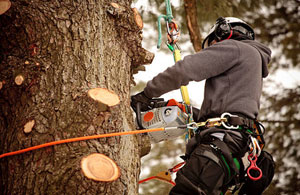
The equipment that tree surgeons use has gotten ever more elaborate recently, and the proper use of it gets the work done effectively and swiftly. The tree surgeon needs to be accustomed to using stuff like flip lines, lowering pulleys, climbing ropes, axes, rigging ropes, harnesses, chain saws, wood chippers, winches, pole saws, rigging plates and stump grinding equipment.
It is advisable to ensure that the tree surgeon will responsibly remove and dispose of all the waste and branches from your premises once completed. Correctly disposing of resulting waste materials ought to be a moral responsibility for any legitimate tree surgeon. It is crucial that they have a valid waste carriers licence and that the waste wood cuttings are removed from the area and discarded befittingly.

Dartmouth tree surgeons help with tree problems throughout the town, although you don't need to worry if your home is in the nearby areas because they will all be glad to travel to places such as Blackawton, Ashprington, Bowden, Eastdown, Harbertonford, Coleton, Stoke Gabriel, Strete, Burlestone, Kingswear, Cornworthy, Bugford, Stoke Fleming, Hemborough Post, Norton, Dittisham etc. Consequently, wheresoever in the Dartmouth locale your home is, you will be able to uncover a trustworthy tree surgeon, and additionally all around Devon and encircling counties.
Tree surgeons don't only climb up, prune and remove trees using specialized equipment and tools, they also oversee their conservation and protection. By means of careful observation they are able to pinpoint possible hazards that could put passers by in danger. Making certain that trees are healthy, disease-free and in a position to prosper and grow, is a vital part of their responsibilities.
Tree surgery is widely available in Dartmouth and also in: Strete, Blackpool Sands, Blackawton, Kingswear, Dittisham, Eastdown, Harbertonford, Hemborough Post, Ashprington, Coleton, Downton, Stoke Gabriel, Stoke Fleming, Ash, Cornworthy, Bowden, Burlestone, Bugford, Norton, and in these postcodes TQ6 9AN, TQ6 9BN, TQ6 9GJ, TQ6 9NY, TQ6 9LD, TQ6 6AX, TQ6 9HT, TQ6 9BX, TQ6 9HF, and TQ6 0FJ. Locally based Dartmouth tree surgeons will likely have the telephone code 01803 and the postcode TQ6.
For this sort of assistance it is certainly far better to bring in a reputable tree surgeon. Dartmouth residents can benefit from the expertise and knowledge that a seasoned professional can offer.
Tree Surgery Courses - Training - Apprenticeships Dartmouth

For anyone who loves the outdoor life, having an occupation in a profession like tree surgery can be incredibly satisfying and rewarding. There are various ways by which you can get started in tree surgery including commencing at the bottom (maybe as a groundworker) and working towards this role, enrolling for a college course, subscribing to a private course, being accepted into a tree surgery apprenticeship or taking a course in university. Tree surgery apprenticeships in Dartmouth can be applied for while you are still attending school, when they're available locally. College and private courses are available throughout the UK and are open to folks of all ages. People with the right qualifications (usually 1 to 3 "A" levels) can go for higher national diplomas, foundation degrees and degrees at university, in any one of the several related fields such as countryside management, arboriculture, forestry, woodland ecology & conservation and forest management. If none of the options above float your boat, it may be possible to attain a bit of tree care experience by doing voluntary work for organisations and groups such as the National Trust, the Woodland Trust, the Tree Council or the Forestry Commission. If you came here looking for advice on "how to become a tree surgeon in Dartmouth", hopefully this article has proven to be useful. The place to head to discover everything there is to know about ways to become a tree surgeon is the website of the government endorsed National Careers Service.
Tree Surveys Dartmouth
Tree surveys could be required for various reasons, but most frequently where property extension or development is taking place. If you happen to be clearing a piece of land in Dartmouth that has trees growing on it, to make room for an extension to an existing property or a brand new home, you'll need to conduct a professional tree survey as required by the British Standards BS5837. Tree surveys on both public and private property must be carried out by a certified tree surgeon or tree surveyor in Dartmouth.
If a tree survey is performed correctly, it will glean a good deal of information about all the trees within the specified area. For instance:
- The existence of any TPOs.
- The number of trees (those of over 75mm diameter 1.5m from the ground).
- The life expectancy of the trees.
- The age of the trees (i.e. young, semi-mature, mature, over-mature and veteran).
- The species of trees.
- The diameter of each tree (taken 1.5m above ground level).
- The health of the trees.
- Guidelines for tree management.
- The spread of the branches towards the East, West, South and North.
- The height of each tree.
- A unique reference number for each of the trees.
You will most likely not need to carry out a tree survey if you are altering an existing home or property in Dartmouth but you aren't extending the footprint of the building and are not shifting the service lines or access points. (Tags: Tree Surveys Dartmouth, Dartmouth Tree Surveys, Tree Surveyors Dartmouth, Tree Survey Dartmouth).
Tree Care Injuries
As we've already pointed out, tree surgeons and tree care professionals in Dartmouth undertake work that can be fairly dangerous. All possible safety measures should be implemented when working on trees, because most tree work involves a significant risk of injuries to both operatives and those on the ground.
According to figures gathered by the Health and Safety Executive (HSE), the use of chainsaws, falls from trees, and being struck by a falling branch or tree are responsible for the vast majority of serious and fatal injuries. In actual fact, people involved in tree care have a higher likelihood of serious injury than those in the construction industry.
According to insurance company sources, being struck by objects (grapple hooks, trees, branches, cranes, ropes etc), lifting injuries and falling from ladders, are the most commonplace accidents for which claims are made.
This all emphasises the need for hiring a seasoned Dartmouth tree surgeon when work needs doing on your trees. Unskilled workers attempting tasks that they have not been trained to do, accounts for most accidents in the tree care industry. Therefore, to avoid this type of issue, always try to use an experienced and trustworthy Dartmouth company who have been working in the area for a good few years.
Cable Bracing Dartmouth
When a tree presents a hazard to nearby pedestrians or property, or if it is showing the warning signs of damage or decay, the tree may be supported with a method known as tree cable bracing. Cable bracing is often used on valuable or older trees in Dartmouth where the aim is to avoid chopping down the tree or removing large unstable portions.
In order to support weak limbs, V-shaped forks and poor joints in a tree, a specially designed cable bracing setup can be used. Through the installation of rods and cables most Dartmouth tree surgeons will be able to redistribute structural stress and prolong the lifespan of old and valuable trees using various kinds of bracing work.
Cable bracing does not cause damage to the tree (as could happen when drilling and bolting the branches), and provides a flexible and shock-absorbing method of support that is pretty much non-invasive. To ensure the safety of the tree and nearby areas, a risk assessment should be done before any cable bracing work can begin.
A Tree Surgeons's Regular Tasks
- Service equipment like chainsaws and chippers.
- Identify hazards presented by trees.
- Work with customers and complete administration duties.
- Evaluate the health of trees and create plans of action.
- Chip and cut logs and branches.
- Prepare tree survey reports for both commercial and domestic clients.
- Be adept with power tools and powered machinery.
- Plant trees and vegetation.
- Climb trees to remove or prune branches as required.
- Fell and remove trees and perform stump grinding.
- Prepare telephone or on-site quotes for customers.
- Tidy work area on completion and remove waste from customer's site.
Firewood and Logs Dartmouth

Of course, you may be looking for a tree surgeon for a totally different reason, because they're frequently an excellent source for logs or firewood in Dartmouth. As chopping off branches and felling trees is part of their daily routine, this is a natural offshoot for an enterprising tree surgeon.
If you're lucky, you might find a tree surgeon in Dartmouth who gives branches and logs away free to collectors, these will often be "green" and in need of drying out. Others will sell off their logs in bags or by the tonne, and these will usually be fully seasoned and dried logs, that are ready for burning.
Logs having a moisture level of less than 20 percent are perfect for burning on your open fire or log burner, and these should have been left to dry out for twelve months or more. Tree surgeons in Dartmouth will mainly have supplies of assorted hardwood logs and these are great for a sustained burn which will generate heat for several hours. If you can get a small supply of softwood logs, these are great for starting a fire, and onto which you can toss your dry hardwood logs once your fire is roaring.
Air-Spading Dartmouth
When the health of your trees is a concern, this may be down to any one of a number of problems, but it is frequently because of issues with the root system. Easy accessibility to the roots of your tree will be necessary for a local tree surgeon in Dartmouth to check for soil compaction, root rot and other plausible issues.
Because of the chance of root damage during the process of digging down, this was difficult to do previously. Many modern day tree surgeons in Dartmouth use a technique called "air spading", which uses compressed air to effectively break down and strip away compressed soil without any risk of damaging the tree's roots.
When the soil surrounding the base of a tree becomes compacted by foot traffic, passing vehicles or construction work, the general health of the tree can be affected in a negative way. When a tree fails to get ample water and nutrients it can quickly become "stressed", and this means that it's more prone to attacks by diseases, insects and pests. Also ideal for fixing root flare problems, air-spading can be employed to successfully remove the soil from the base of a tree which has become covered in too much soil, heightening the chances of root rot.
By forcing air into spaces in the soil at a speed of twelve hundred miles per hour through the use of an air compressor and an air-spade tool, the ingenious air-spading process swiftly breaks down the soil without impacting the tree roots. Immediate inspection is possible, as the powerful flow of air blows away the soil from the roots. A resolution can then be found for any issues, and the soil replaced with wood chips and fertiliser to help revitalize the tree.
Deadwooding Dartmouth
The practice of dead-wooding (or deadwooding) is a crucial part of tree care in Dartmouth, and any reputable tree surgeon should be able to offer you this service. Where there's a danger to pedestrians, property or vehicles, dead-wooding is done to remove the dying and dead branches that are at risk of falling. A tree's branches can die for a number of reasons, the most typical being attack by pests, excessive shading, a damaged root system or disease.
While the most frequent rationale for the removal of dead branches is that of safety, it is also sometimes done to benefit the tree, and for aesthetic reasons. An excess of dead, damaged and dying branches can attract the spread of disease and insect infestations, so the removal of these compromised branches can radically improve the health of a tree. Dead wood also makes a tree look ugly, and by removing all of this you can make it more attractive.
Only larger dead branches will generally be cut out, as in most situations the small ones won't present much of a risk. Having said that, where a garden, a home, a public space, a park or a road in Dartmouth is overhung by trees, any dead limbs of more than 50mm diameter might need to be removed.
The Use of Chainsaws

In terms of the tools that are used by Dartmouth tree surgeons, the most commonly seen is the chainsaw. Petrol driven chainsaws are the most popular with professionals, because of their ease of use and greater portability, although corded electric models are available, and battery operated chainsaws are becoming more popular in some situations. Where large tree stems and thick limbs need cutting, such heavy tree work requires the use of the most robust petrol chainsaws.
A chainsaw basically consists of a rotating motor-driven chain which is armed with a set of teeth that effortlessly cut through the bark of a tree and the wood beneath. Aside from what powers them, there are also a variety of types of chainsaw for different operations, rear-handled for work at ground level (two handed), pole saws for hard to reach branches and long distance pruning and top-handled for working at height (and which can be used with one hand if necessary).
Although holding a rapidly rotating blade while balancing precariously up a tree is definitely not the safest job on the planet, it is pretty rare to see a tree surgeon in Dartmouth who doesn't use a chainsaw in his/her daily activities. One of the key prerequisites for membership of the AA (Arboricultural Association), is that professional tree surgeons need to be fully trained in the maintenance and safe use of chainsaws.
The most popular makers of chainsaw used in the United Kingdom by specialist tree surgeons are Husqvarna, Hyundai, Stihl and Makita, although there are numerous different brands.
Crown Thinning Dartmouth

The removing of some of the small branches on the outer crown of a tree to produce a leaf density that is even all the way through whilst not transforming the size or shape of a tree, is commonly called crown thinning. This tree work is usually only performed on trees with broad leves (Rather than conifers) and is done to let more sunlight throughout, to minimize the wind resistance of the tree, to lessen the total weight of the crown, to prevent the tree from uprooting in strong winds or to ease the stress put on certain limbs resulting from ice, wind, snow, or gravity. Crown thinning should not alter the general structure and size of the tree, but should produce a uniform foliage density around consistently spaced limbs. It should be possible to obtain crown thinning services in Blackawton, Ashprington, Bowden, Eastdown, Harbertonford, Coleton, Stoke Gabriel, Strete, Burlestone, Kingswear, Cornworthy, Bugford, Stoke Fleming, Hemborough Post, Norton, Dittisham, and the Dartmouth area.
Stump Grinding
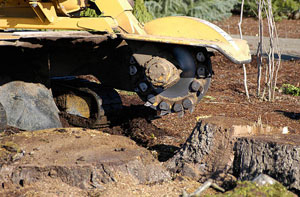
It is important to it is best to employ a company having the correct gear and knowhow, when you need to get stump grinding carried out in Dartmouth. Skilled tree surgeons will be able to grind out all of the stump to well below ground level. Grinding down roots and stumps within a few millimetres of walls and buildings while avoiding damage, can only be done if your tree surgeon has got access to the appropriate machinery. This tailor-made grinding apparatus is so versatile that it can even be used to remove stumps which are tucked away in alleys, passageways and similarly inaccessible places. If you are taking out a large tree the resulting stump could be pretty enormous and no matter what you're likely to use the resulting space for afterwards, there is a pretty good chance the remaining stump will need to be extracted well below the surface.
Tree Removal Dartmouth
Tree removal can become necessary if a tree is diseased, unstable, or too large for the space it occupies. While trees are vital to our environment, there are moments when they pose dangers to nearby structures or individuals. Overgrown branches, invasive roots, or the possibility of a tree falling can make removing it the best solution. It's not a decision to be taken lightly, but when required, it can increase the safety and practicality of your outdoor space in Dartmouth, giving you greater peace of mind.

You know, the whole process of taking down a tree isn't quite as simple as it sounds, especially when it comes to larger ones. It really does involve a fair bit of planning and having the right tools so that everything can be done safely and efficiently. Professional tree surgeons possess the skills necessary to evaluate the tree and figure out the most effective way to remove it while minimising the disturbance to the nearby area. Plus, they'll take care of the tree's disposal for you, which definitely saves you a lot of trouble. Trying to tackle this yourself could be quite hazardous, which is why it's always wiser to call in an expert when you're dealing with bigger jobs.
After a tree has been taken out, your outdoor space opens up to exciting new possibilities. The extra sunlight can be great for nearby plants, and that freed space could become a fantastic new addition - think patio, a driveway, or even a charming garden feature. Whether you're considering this for safety reasons or just to reimagine your garden's layout, when tree removal is done with thoughtfulness, it can really elevate your Dartmouth garden or outdoor area, making it a more enjoyable space for years down the line. (Tags: Tree Removal Dartmouth).
Tree Transplanting Dartmouth

Moving trees and transplanting them to other areas has become a comparatively simple process since the development of tractor mounted tree spades and other nifty tree lifting devices. Mature trees can be replanted on new properties to accomplish an instantly landscaped look, or overgrown woody areas could be thinned without needing to stoop to tree felling.
If you haven't any choice but to move a tree in Dartmouth in the warmer seasons of summer and spring, you must lessen the stress of the move on the tree's roots by comprehensively soaking the soil before any work commences. To raise a tree from the earth a tractor based mechanical tree spade is forced down into the ground to surround the tree's root ball, before lifting the entire thing free. The tree is then ready to be transported to its new location for transplanting, or kept in temporary storage until it is ready to be replanted.
A specialist tree moving business in Dartmouth will liaise with local authorities to ensure that local regulations and preservation orders are observed and followed throughout the tree transplantation process. (Tags: Tree Transplanting Dartmouth, Tree Moving Dartmouth, Tree Replanting Dartmouth).
Problematic Tree Roots Dartmouth

When they are growing too close to your home in Dartmouth, some large trees have really aggressive roots, and can cause problems. Among the most common issues are: blocked drains, damaged foundations and lifting patios. Some tree species that have extremely invasive root systems include willows, sycamores, elms and maples.
Complications can be avoided later on, if you make certain that you plant new trees as far as possible away from pathways, patios, your drainage pipes and your house. If some of these issues are already being caused by pre-existing trees which are growing too near to your home, you should get hold of a tree surgeon in Dartmouth for help and advice.
To avoid severely harming your tree's health or even killing it off altogether, you certainly shouldn't just cut out the problematic tree roots in an effort to solve this yourself. To survive successfully, a tree will still need to be getting ample water and nutrients, and a qualified arborist in Dartmouth will know precisely which roots should be left, and which roots can be safely cut.
Shrub and tree roots often cause structural issues in subterranean drains, because sewerage pipes provide a constant source of moisture and nutrients. Blockages and joint failure can occur when a drainage system's joints are invaded by tiny tree roots, which can eventually develop into sizeable root balls when they've established themselves. To get rid of the offending roots, professional root removal services will be offered by many local tree surgeons, who will employ high pressure water jetting, manual rodding or electro-mechanical equipment.
Vegetation Control
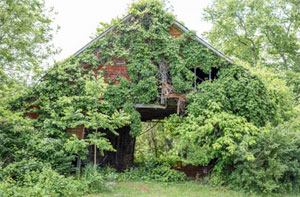
Although lots of property owners in Dartmouth will believe that tree surgeons only tackle the maintenance and removal of trees, that is really not the truth, because most tree surgeons are also happy to deal with overgrown gardens and land that is choked with rampant plant growth. Quality tree surgeons will usually be happy to take out overgrown vegetation, bushes, weeds and shrubs which may be taking hold near sheds, drives, pathways, patios or buildings, and generally creating an annoyance. If you are going to manage your garden effectively then all of this accumulating growth should be eliminated at least once a year, and if you have the inclination and time this is something that you can undertake on your own if you're fit and healthy, or you might ask a local tree surgeon to call occasionally to keep it in shape. The control of vegetation is necessary if you're going to maintain easy and safe access to all sections of the garden and if this is forgotten the vegetation and plants can very quickly get out of control and lessen the enjoyment of your garden. Apart from anything else the garden will also look a picture when properly maintained. (Tags: Vegetation Control Dartmouth, Vegetation Management Dartmouth, De-Vegetation Services Devon)
Emergency Tree Surgery Dartmouth
Even though emergencies are rare with regards to trees in your garden, accidents are always possible, therefore it may be wise to have an emergency phone number for a tree surgeon in Dartmouth. When the conditions in Dartmouth are stormy and windy, tree surgeons generally expect to see a huge increase in emergency calls, and luckily some of them provide a 24/7 service for your peace of mind. Whilst the risk of an entire tree toppling over are low, there is more likelihood of branches breaking off and crashing to the ground below, when the weather conditions are windy. Typical issues that happen due to tree emergencies are squashed sheds, damaged fences, cracked greenhouses and broken garden furniture.
When large tree branches snap of and drop onto railway tracks, roads and public footpaths, the local authorities in the Dartmouth area will also often need emergency tree surgery services.
Even when the emergency tree work has been carried out, a tree that has lost some large branches may have to be "re-balanced", and this could be done for aesthetic reasons or because the tree now looks uneven, with an uneven weight distribution, maybe resulting in additional issues. If you've got any of these tree related issues, you shouldn't try to tackle any of them on your own, and you must promptly contact a local Dartmouth tree surgeon who provides emergency tree care services, so that they can suggest the best plan of action.
Wood Chipping Dartmouth

As large amounts of branches, vegetation and tree limbs are the result of the tree surgery procedure, most Dartmouth tree surgeons will use wood chipping devices to reduce this material into manageable pieces. Although it depends on the equipment that is being used, these impressive wood chipping systems can munch up as much as forty tons of material each hour, and even the more commonly used machines can process around 5 tons every hour, or basically as much as you can feed in.
Having numerous uses like landscaping, biomass solid fuel, ecosystem restoration, wood pulp, weed prevention, woody mulch, garden pathways and mushroom cultivation, the chopped down tree branches are also much easier to transport.
If you have a good use for the wood chippings that are produced during your tree surgery assignment, most tree surgeons in Dartmouth will be very happy to let you have however much you need, and they'll take away the rest for use in other locations, or dispose of as they see fit. Even if you do not need any tree surgery to be done on a property in Dartmouth, tree surgeons are still a good source for wood chips which you can use in your garden. Some tree surgeons will be prepared to let you have wood chips free, others will charge, especially if you need to have them delivered.
Crytec, Timberwolf, Forest Master and Hyundai, are among the most popular brands of wood chipping equipment. (Tags: Wood Chipping Equipment Dartmouth, Wood Chipping Services Dartmouth, Wood Chips Dartmouth, Wood Chipping Dartmouth).
Ash Dieback (Hymenoscyphus Fraxineus)
A highly infectious fungal disease of ash trees that was first reported in Great Britain in 2012, ash dieback is expected to decimate about 80 percent of the current ash trees. Following on from the Dutch Elm Disease disaster, which killed Britain's elm trees, ash dieback is going to have huge repercussions for our beloved countryside.
A disease that affects the Fraxinus genus of trees, it has an especially devastating effect on Fraxinus excelsior, the common ash that is native to Britain. Originating in Asia, the fungus which causes ash dieback is named Hymenoscyphus fraxineus.
Already present in most parts of the United Kingdom, ash dieback (or chalara ash dieback) is dispersed by minute spores that blow on the wind, and released from the fruiting bodies of the fungus, and can travel for tens of miles.
Ash dieback can be recognised by symptoms like:
- Foliage that wilts, turns black in colour and falls early.
- Leaves with dark patches that appear during mid to late summer.
- Dark brown lesions form where limbs meet with the trunk, and the inner bark under the lesions looks brownish grey.
- Dying leaves and shoots that are visible during the summertime.
- New growth appearing from previously dormant buds.
Even ash trees which have the ability to fight off the disease, suffer repeated attacks year-on-year and ultimately succumb and perish. There's currently no cure for ash dieback, and no clear strategy for stopping its spread.
If you think a tree in your local neighbourhood is contaminated with ash dieback, or you're worried about a tree in your garden in Dartmouth, you should bring in a local tree surgeon to confirm the diagnosis, and you could then send in a report to the "Tree Alert Service" provided by the Forestry Commission, although they're presently only interested to know about cases in areas that were previously unaffected.
Tree Surgery Tasks Dartmouth

Dartmouth tree surgeons will likely help you with tree maintenance, tree lightening protection in Dartmouth, tree pruning, crown thinning in Dartmouth, tree reduction, damage restoration, crown removal, hedge lowering, crown cleaning, tree surveys, site clearance, safety inspections, emergency tree removal, forestry management Dartmouth, root decompaction, vegetation management, shrub maintenance, hedge reduction, drop crotching, formative pruning, professional tree care, tree topping in Dartmouth, arboriculture, hedge planting Dartmouth, dead wood removal, retrenchment pruning, tree dismantling in Dartmouth, landscaping, woodland clearances, crown reduction, root pruning, woodland management Dartmouth, pest control, tree planning Dartmouth, tree cutting and other tree surgeon services in Dartmouth, Devon. These are just a few of the tasks that are conducted by tree surgeons. Dartmouth providers will be delighted to keep you abreast of their full range of services.
Tree Surgeons Near Dartmouth
Also find: Hemborough Post tree surgeons, Ash tree surgeons, Stoke Fleming tree surgeons, Blackpool Sands tree surgeons, Blackawton tree surgeons, Ashprington tree surgeons, Harbertonford tree surgeons, Bugford tree surgeons, Downton tree surgeons, Coleton tree surgeons, Burlestone tree surgeons, Dittisham tree surgeons, Eastdown tree surgeons, Norton tree surgeons, Cornworthy tree surgeons, Kingswear tree surgeons, Strete tree surgeons, Stoke Gabriel tree surgeons, Bowden tree surgeons and more. The majority of these areas are covered by professional tree surgeons. Local householders and others can obtain tree surgery price quotes by clicking here.
Tree Care Services Dartmouth
- Tree Cutting
- Tree Planning
- Crown Raising
- Crown Thinning
- Air-Spading
- Tree Lopping
- Root Grinding
- Stump Treatment
- Tree Surveys
- Tree Pollarding
- Dead Wooding
- Tree Bracing
- Tree Care
- Crown Lifting
More Dartmouth Trades: Obviously, when you happen to be having tree surgery done in Dartmouth, Devon, you will probably need other garden related services, and apart from a tree surgeon in Dartmouth, Devon, you may additionally need garden waste removal in Dartmouth, garden shed builders in Dartmouth, weeding in Dartmouth, garden planning and design in Dartmouth, pond maintenance in Dartmouth, soil drainage services in Dartmouth, fence builders in Dartmouth, artificial grass installers in Dartmouth, patio installers in Dartmouth, landscape gardeners in Dartmouth, grass cutting in Dartmouth, block paving in Dartmouth, hedge clipping in Dartmouth, garden clearance in Dartmouth, SKIP HIRE in Dartmouth, decking installers in Dartmouth, and other different Dartmouth tradespeople.
 Tree Surgeon Dartmouth
Tree Surgeon Dartmouth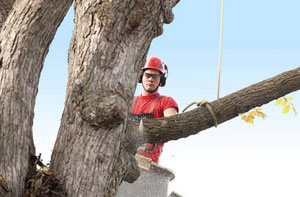 Tree Surgeons Dartmouth
Tree Surgeons Dartmouth Tree Surgery Dartmouth
Tree Surgery DartmouthMore: Crown Raising, Woodchipping, Tree Maintenance, Tree Dismantling, Hedge Planting, Root Decompaction, Tree Pollarding, Tree Cutting, Soil Terravention, Woodland Clearance, Wood Chipping, Hedge Reduction, Stump Grinding, Tree Replanting, Vegetation Management, Crown Thinning, Tree Reduction, Tree Felling, Vegetation Management, Hedge Cutting, Shrub Maintenance, Tree Transplanting, Woodchipping, Tree Felling, Tree Removal, Cable Bracing, Tree Shaping, Tree Inspections, Hedge Trimming, Site Clearance.
To find out local Dartmouth info look here
Tree Surgery TQ6 area, telephone code 01803.
Stump Removal Dartmouth - Tree Reshaping Dartmouth - Tree Felling Dartmouth - Tree Surgeons Near Me - Tree Surgery Dartmouth - Tree Surgeons Dartmouth - Tree Care Dartmouth - Tree Surgeon Dartmouth - Woodland Management Dartmouth






